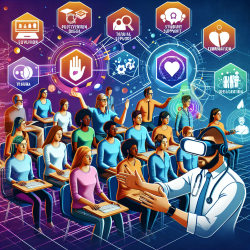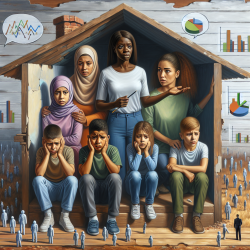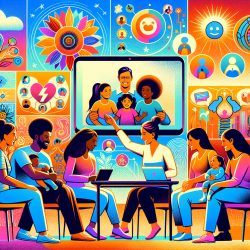Introduction
In the wake of the COVID-19 pandemic, educators have faced unprecedented challenges in addressing the mental health needs of students. The research article "Postvention as Prevention: Coping with Loss at School" highlights the potential of virtual human role-play simulations in equipping educators with the skills needed to support students through traumatic losses. This blog explores how practitioners can leverage these findings to improve their skills and create supportive school environments.
The Power of Virtual Simulations
The study conducted by Khalid et al. (2022) demonstrates the effectiveness of virtual simulations in enhancing educators' preparedness and self-efficacy. By engaging in role-play scenarios, educators learn to recognize signs of trauma, initiate supportive conversations, and refer students to appropriate services. The results showed statistically significant improvements in educators' ability to support students and colleagues, highlighting the transformative potential of such simulations.
Key Findings
- Increased Preparedness: Educators reported feeling more confident in identifying students in psychological distress and initiating conversations about their concerns.
- Enhanced Self-Efficacy: Participants felt more capable of referring students to support services and motivating them to engage in self-care.
- Reduced Stigma: The simulation led to a decrease in stigma related to discussing suicide, promoting a more open and supportive school environment.
Implementing Virtual Simulations in Schools
For practitioners looking to implement these findings, consider the following steps:
- Advocate for Training: Encourage school administrations to invest in virtual simulation training for educators. Highlight the benefits of improved student support and reduced stigma around mental health discussions.
- Integrate into Professional Development: Incorporate virtual simulations into ongoing professional development programs to ensure educators have the skills to support students effectively.
- Foster a Supportive Environment: Use the skills learned in simulations to create a community of support within the school, promoting open discussions about mental health and well-being.
Encouraging Further Research
While the study provides promising evidence, further research is needed to explore the long-term impact of virtual simulations on school communities. Practitioners are encouraged to collaborate with researchers to expand the evidence base and refine these interventions for maximum effectiveness.
Conclusion
Virtual simulations offer a powerful tool for educators to enhance their ability to support students through traumatic losses. By implementing these findings, practitioners can create safer and more supportive school environments, ultimately improving student outcomes. For those interested in exploring this topic further, I highly recommend reading the original research paper, "Postvention as Prevention: Coping with Loss at School."










